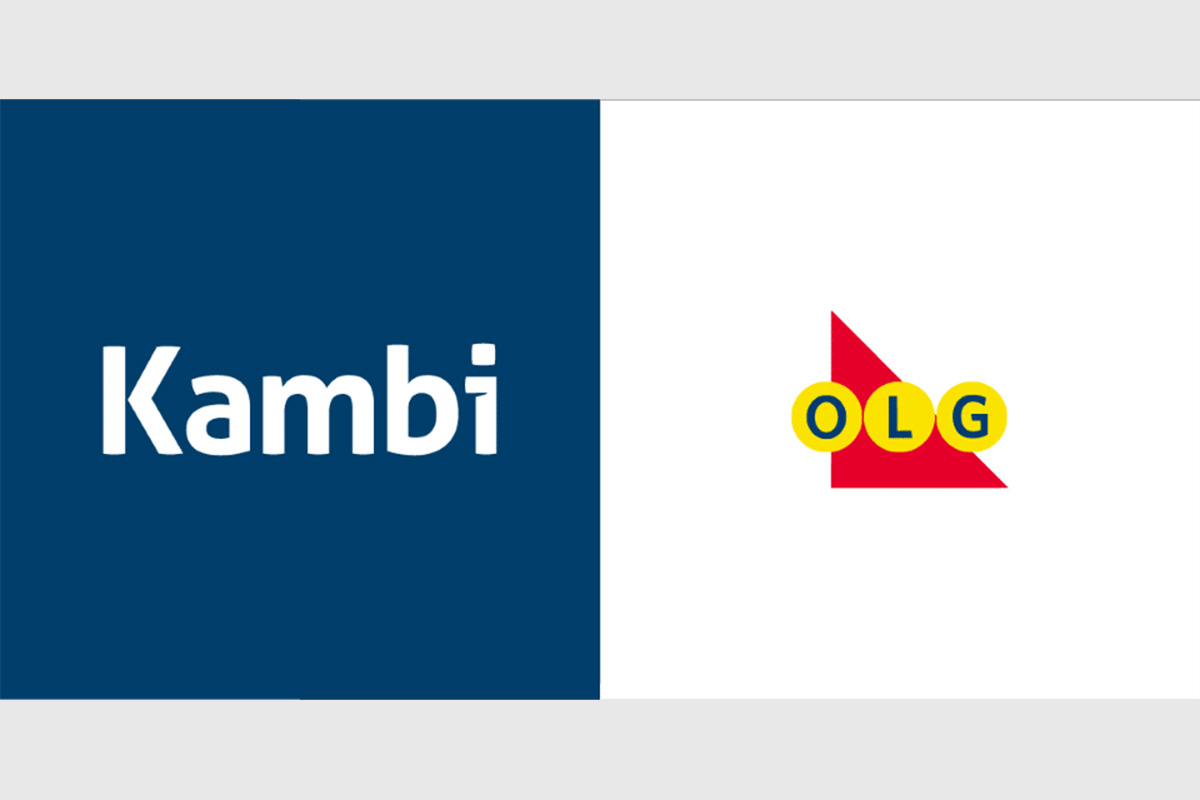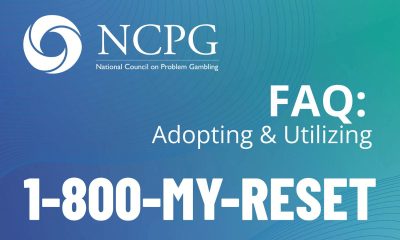Canada
Flop, turn, river; how has US gambling evolved in the last five years?

Gambling has been a part of American culture since the colonial era. Would you believe that the first recorded gambling activity in the US was purportedly in 1620 when the Pilgrims landed on Plymouth Rock and held a public lottery to finance their colony.
Safe to say then, gambling has been a popular pastime in the US, particularly considering the strength of their sporting industries, which are bastions of the continent’s financial and social landscape.
The federal government had a strict stance on gambling, and it was mostly illegal except for a few states like Nevada. The Professional and Amateur Sports Protection Act (PASPA) prohibited states from authorizing sports betting, with a few exceptions.
But in May 2018, in the case Murphy v. National Collegiate Athletic Association, the US Supreme Court overturned a federal ban on sports betting, which had been in place since 1992. The decision declared PASPA unconstitutional, giving individual states the power to legalize and regulate sports betting as they see fit.
The move to legalize sports betting has had a significant impact on the gambling industry. It has opened up a new market for sports betting, creating opportunities for casinos, sportsbooks, and online betting platforms, much like casino sites and affiliates in the UK that have been legal in the UK for many years.
This year’s Super Bowl was the first played in a state — Arizona — with legal sports gambling and online sportsbooks reportedly received 100 million “pings” through betting apps during the game, bringing in an estimated $1 billion.
This leap in activity has been pounced on by major sports leagues too, sportsbook sponsorship driving overall NFL sponsorship revenue to a record $1.8 billion in the 2021 season.
Thirty three states, including Washington D.C. and Puerto Rico have legalized the practice and reaped billions of dollars of previously untapped revenue. In fact, the American Gaming Association estimates that the sports betting market could be worth up to $150 billion annually.
Online sports wagering is available in 23 states and one territory.
The legalisation of sports betting has not only created new revenue streams for the gambling industry but also for the economy as a whole. Casinos and sportsbooks have created jobs in local communities, with some states experiencing a surge in tourism. Moreover, the tax revenue generated from sports betting has been significant. For example, in New Jersey, sports betting has generated over $100 million in tax revenue since its legalization in 2018.
The Supreme Court’s decision on sports betting has also paved the way for the legalisation of online gambling, which had previously been illegal in most states. But now, several states have since opened their doors to it, including New Jersey, Pennsylvania, and Delaware. Online gambling has become a popular option for many people, and it has the potential to generate significant revenue for states that legalise it.
While there have been many positive economic effects, it has also raised concerns about its social impact. Gambling addiction is a serious problem that affects millions of people worldwide, and some fear that the legalization of gambling could exacerbate the problem. However, states that have legalized gambling have implemented measures to address gambling addiction, such as education programs and support groups.
Despite the potential benefits of gambling legalisation, there are still those who oppose it. Some religious groups argue that gambling is immoral and should be banned, while others fear that it could lead to an increase in crime and other social problems.
“The legalization of sports gambling requires an important policy choice, but the choice is not ours to make,” Justice Samuel A. Alito Jr. wrote in the case’s decision, highlighting the moral imperative behind the choice to gamble or to not.
Ironically, the states that are furthest away from permitting online sports betting may be the three biggest states by population: Texas, California and Florida. Texas could possibly legalize in the near future but there has been pushback from the state officials, including Governor Greg Abbott.
California and Florida have had difficulty passing legislation due to Native American tribes, which see the emergence of gambling legalisation as a siphon into their profits. This battle in particular could be one to monitor in the coming months and years. Challenges have already begun in the relations between casino operators opening in states where Native American operations have historically held the monopoly.
However, supporters of gambling legalization argue that it can be regulated and controlled, and that the benefits outweigh the risks. The increased cash flow would bring in funding for essential public services like healthcare and education.
It’s clear that this is a new era for the industry in the US. With more states expected to legalise sports betting and online gambling, the industry is poised for significant growth.
In a recent interview with The Conversation, Keith Whyte, executive director of the National Council on Problem Gambling, said roughly 25% of American adults bet on sports, up from 15% before the Supreme Court ruling.
Does that mean that even when more states legalise the practice, will a significantly higher percentage of the US population start and continue betting or has the ceiling been reached?
“I think it’s changing the market in a lot of ways,” Whyte said, “but my guess is it’s mainly to increase the intensity – and associated risk of problem gambling – among fans that were already engaged fans.”
The future of gambling in the US is still uncertain, with debates about its social impact and regulation ongoing. Where the UK is arguably reeling back in the power gambling companies hold over advertising and market activity through the government’s upcoming White Paper, the US is taking off.
As the industry continues to evolve, it will be essential to strike a balance between economic benefits and social responsibility but one things for certain, the US has a baked-in love for gambling and given the stratospheric success of sportsbooks across the nation since the 2018 ruling, it is unlikely to dampen anytime soon.
Powered by WPeMatico
AGLC
PointsBet Canada Officially Begins Registration Process in Alberta

PointsBet Canada has announced that it has commenced the registration process in Alberta and can now begin marketing activities, positioning the company to enter the province as Alberta prepares to become Canada’s second open and competitive regulated iGaming market.
Eligible Alberta residents can now pre-register at https://www.pointsbet.ca/ to receive notification of PointsBet’s launch, along with an exclusive welcome offer, ahead of the full platform rollout expected in the coming months.
This development follows the Alberta Gaming, Liquor and Cannabis (AGLC) streamlined process, enabling PointsBet Canada to introduce its premium sports betting and online casino experience while final registration steps continue.
“Alberta’s move toward an open, competitive iGaming framework is a positive step for Canadian players, offering more choice and consumer protections in a safe and regulated environment. We’re excited to introduce our innovative, Canadian-focused sports betting and online casino products to Alberta residents, supported by industry-leading speed, responsible gaming tools, and local expertise,” said Scott Vanderwel, CEO of PointsBet Canada.
The post PointsBet Canada Officially Begins Registration Process in Alberta appeared first on Americas iGaming & Sports Betting News.
Canada
Kambi Group Becomes the Official Sportsbook Partner of Ontario Lottery and Gaming Corporation

Kambi Group has formally assumed contractual responsibilities for OLG’s multi-channel sportsbook following the successful completion of the novation agreement with FDJ Gaming Solutions France (FDJ) and Ontario Lottery and Gaming Corporation (OLG), with OLG launched its Kambi-powered sportsbook on 27 January.
Kambi, the home of premium sports betting solutions, confirmed that it has formally assumed contractual responsibilities for the provision of sports betting services to OLG, having successfully met all conditions of the previously agreed novation agreement.
The completion follows the announcement in 2025 that Kambi had been selected by FDJ to take over FDJ’s role as OLG’s long-term sports betting partner with OLG’s consent and pending the satisfaction and completion of specific conditions. With these conditions now met, Kambi has officially assumed responsibility for the provision of sports betting services to OLG across both its retail and digital channels, with OLG gone live with its Kambi-powered sportsbook on 27 January.
OLG offers sports betting through PROLINE (retail) and PROLINE+ (online) with 100% of its profits reinvested into Ontario. Powered by Kambi’s Turnkey Sportsbook, OLG’s sports betting operations will benefit from Kambi’s market-leading technology and services, designed to deliver a scalable, compliant and engaging betting experience for players.
Werner Becher, Kambi Group Chief Executive Officer, said: “We are delighted to have officially completed this transition and to begin this next chapter of our partnership with OLG. Having met the necessary conditions of the novation agreement, Kambi is excited to become the official sportsbook provider and to have launched with one of the world’s most respected lottery operators. We value our partnership with OLG and look forward to leveraging our proven technology to help them drive sustainable growth and provide a safe and entertaining betting product for their customers in Ontario.”
Duncan Hannay, OLG President and CEO, added: “OLG strives to provide a market leading PROLINE sports betting experience for our players. We look forward to working alongside our new partner, Kambi, who offers a proven track record of product excellence and reliability, as we deliver on our commitment to give back to the people and communities of Ontario. This is an exciting step forward for both organizations.”
The post Kambi Group Becomes the Official Sportsbook Partner of Ontario Lottery and Gaming Corporation appeared first on Americas iGaming & Sports Betting News.
Canada
High Roller Technologies Signs Letter of Intent with Kindbridge Behavioral Health to Support Responsible Gambling in Ontario

High Roller Technologies Inc., operator of the award-winning, premium online casino brands High Roller and Fruta, announced it has entered into a non-binding Letter of Intent (LOI) with Kindbridge Behavioral Health (Kindbridge) to support its commitment to responsible gambling in Ontario, subject to licensing and regulatory approval.
Through the planned partnership with Kindbridge, High Roller intends to offer eligible Ontario players who choose to self-exclude a confidential pathway to support that helps individuals understand their options and take next steps at their own pace. The experience begins with education and a guided triage process, followed by the option to connect with no-cost peer support and, when appropriate, licensed Canadian clinicians. Using a stepped-care approach, individuals can start where they feel ready and access additional support over time, based on their needs and goals.
“We believe entertainment should always be enjoyed responsibly. Partnering with Kindbridge reinforces our commitment to player wellbeing by ensuring that anyone who may be experiencing challenges with their gambling activity has access to meaningful, professional support. This collaboration reflects our responsibility not only as an operator, but as a trusted brand that puts people first,” said Seth Young, Chief Executive Officer at High Roller.
Kindbridge works with gaming operators across North America to deliver early-intervention programs designed to identify, assess, and support at-risk individuals, including integration with self-exclusion and responsible gaming workflows.
“Building strong, accessible pathways to support is an essential part of effective responsible gambling programs.nOperators are uniquely positioned to assist individuals who may be experiencing distress by helping connect them to appropriate care. We’re proud to work with High Roller to expand access to specialized clinicians and evidence-based resources, supporting healthier outcomes for players and more effective responsible gambling frameworks,” said Daniel Umfleet, Founder & CEO of Kindbridge Behavioral Health.
Seth Young, who currently serves as Chief Executive Officer of High Roller, is a current shareholder, member of the Board of Advisors, and former member of the Board of Directors at Kindbridge.
The post High Roller Technologies Signs Letter of Intent with Kindbridge Behavioral Health to Support Responsible Gambling in Ontario appeared first on Americas iGaming & Sports Betting News.
-

 Latest News7 days ago
Latest News7 days agoACR POKER GIVES PLAYERS A SHOT TO QUALIFY ONLINE FOR $700,000 GTD ENJOY POKER SERIES MAIN EVENT THIS FEBRUARY IN URUGUAY
-

 Amusnet6 days ago
Amusnet6 days agoWeek 5/2026 slot games releases
-

 Compliance Updates6 days ago
Compliance Updates6 days agoNational Council on Problem Gambling Adopts 1-800-MY-RESET as New National Problem Gambling Helpline Number
-

 Ani Isakhanyan6 days ago
Ani Isakhanyan6 days agoFeedConstruct Expands its Presence in Latin America
-

 FDJ UNITED6 days ago
FDJ UNITED6 days agoFDJ UNITED Aims to be Among the Top Three Licensed Gambling Operators in Finland
-

 Compliance Updates6 days ago
Compliance Updates6 days agoDigitain Secures Isle of Man iGaming Software Supplier Licence
-

 betting terminals6 days ago
betting terminals6 days agoMeridianbet Completes Fairbet Acquisition, Expanding Malta Retail Gaming Network Under Golden Matrix Group
-

 Carl Gatt Baldacchino Head of Account Management SlotMatrix6 days ago
Carl Gatt Baldacchino Head of Account Management SlotMatrix6 days agoSlotMatrix Unleashes Fiesta-Fueled Thrills with Muertos Fortune



















